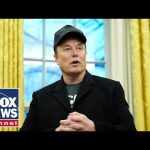President Donald Trump’s announcement of sweeping tariffs on April 2, 2025, has sent shockwaves through global markets and diplomatic circles. Declaring a “national emergency” under the International Emergency Economic Powers Act (IEEPA), Trump unveiled a 10% baseline tariff on all imported goods, effective April 5, with even steeper reciprocal tariffs targeting nations with significant trade barriers. These measures, which Trump framed as essential to revitalizing American industry and addressing persistent trade deficits, mark a bold escalation in his administration’s push for economic nationalism.
The tariffs aim to address what the president described as decades of unfair trade practices that have hollowed out America’s manufacturing base and left critical supply chains vulnerable. Trump emphasized that the United States would no longer tolerate being taken advantage of by foreign nations through currency manipulation and nonreciprocal trade policies. While the president’s rhetoric struck a chord with many Americans concerned about economic security, critics warn that these aggressive measures could lead to higher consumer prices and disrupt global trade networks.
International reactions have been swift and varied. China, facing a staggering 34% tariff on its exports to the U.S., has vowed to implement countermeasures, accusing the Trump administration of “unilateral bullying.” The European Union, hit with a 20% tariff, labeled the move a “major blow to the world economy” and hinted at retaliatory measures targeting U.S. technology companies. Even traditional allies like Australia and Canada expressed frustration, with Canadian Prime Minister Mark Carney pledging decisive counteractions despite Canada’s partial exemption under the United States-Mexico-Canada Agreement (USMCA). These responses underscore the potential for a full-blown trade war as nations scramble to protect their economic interests.
Domestically, markets have reacted with volatility. The Dow Jones Industrial Average plunged 1,600 points following the announcement, reflecting investor anxiety over potential inflation and recession risks. Critics argue that the tariffs could backfire by increasing costs for American businesses and consumers while straining international relations. However, proponents see this as a necessary step to level the playing field for U.S. industries and reduce dependence on adversarial nations like China. Treasury Secretary Steven Mnuchin defended the policy, asserting that it would ultimately strengthen America’s economic position by incentivizing domestic production.
As the global community braces for the fallout, President Trump’s tariffs represent a high-stakes gamble on economic nationalism. While they resonate with his base and underscore his “America First” agenda, their long-term success hinges on whether they can deliver tangible benefits without triggering widespread economic disruption. The next few weeks will be critical as countries weigh their responses and negotiations unfold. For now, Trump’s bold move has reignited debates over globalization, protectionism, and America’s role in an increasingly interconnected world economy.




